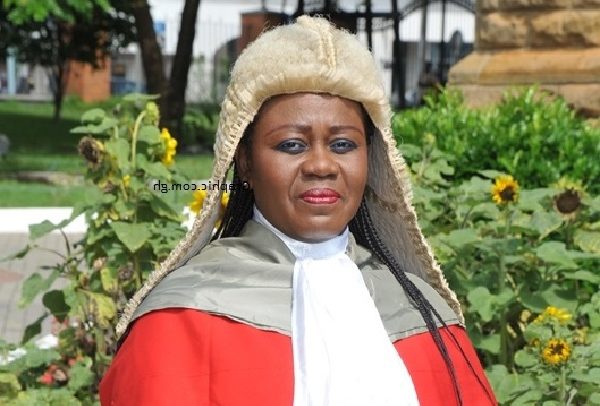Gertrude Araba Esaaba Sackey Torkornoo
The Supreme Court (SC) yesterday dismissed two separate writs challenging the passage of the Proper Human Sexual Rights and Ghanaian Family Values Bill (2024), often referred to as the Anti-LGBTQ Bill.
A seven-member panel of the court, in a unanimous decision, held that the court did not have jurisdiction to overturn an act of Parliament which has not completed.
The dismissal of the suits clears the way for the bill to be transmitted to the President for assent into law.
It remains to be seen whether President Akufo-Addo will assent to it or it would be left for President-elect John Dramani Mahama to do so after taking office on January 7, 2025.
The court dismissed the two writs filed by broadcast journalist, Richard Dela Sky and a researcher, Dr. Amanda Odoi, challenging the processes leading to the passage of the bill and steps taken for its transmission to President Akufo-Addo for assent into law.
The panel, presided over by Justice Avril Lovelace Johnson, held that the bill is yet to be assented to by the President for it to become law, hence the court had no jurisdiction to interfere with the process.
“We are of the view that the subject of the litigation being a bill still undergoing the process of becoming law in accordance with the provision clearly set out in the Constitution, it will be premature for this court to exercise its interpretive and enforcement jurisdiction to intervene,” the court held.
Bill
Parliament on February 28, 2024, passed the Proper Human Sexual Rights and Ghanaian Family Values Bill, often referred to as the Anti-LGBTQ+ Bill, which introduced further punishment for same-sex activities in the country.
The bill, among other things, advocates prison terms for those who take part in LGBTQ+ sexual acts, as well as those who promote activities of gay, lesbian or other non-conventional sexual or gender identities in Ghana.
Sky’s Writ
Richard Dela Sky, in his writ, was challenging the constitutionality of the passage of the bill and is seeking the Supreme Court to declare the bill null and void.
He also contended that the passage of the bill violates provisions of the 1992 Constitution, particularly Articles 33(5), 12(1) and (2), 15(1), 17(1) and (2), 18(2), and 21(1) (a) (b) (d) and (e) of the Constitution.
He averred that provisions in the bill raise profound concerns regarding the potential infringement of the fundamental human rights and freedoms guaranteed to every Ghanaian by the constitution.
Dr. Amanda Odoi, a researcher, on the other hand, was questioning certain provisions of the Proper Human Sexual Rights and Ghanaian Family Values Bill.
She was seeking a restraining order to prevent the Speaker, the Attorney General, and the Clerk of Parliament from sending the bill to President Akufo-Addo for his approval.
Decision
The seven-member panel made up of Justices Avril Lovelace Johnson, Henrietta Mensa-Bonsu, Barbara Ackah-Yensu, Samuel Asiedu, Ernest Gaewu, Yaw Asare Darko, and Richard Adjei-Frimpong, in a unanimous decision held that the invocation of the interpretive jurisdiction of the court is premature as there is nothing on which to hang the exercise of the judicial review jurisdiction of the Supreme Court.
The court said the constitution itself has prescribed the mode by which an enactment properly so called can come into being, and by the principle of separation of powers, those processes must be exhausted to produce a tangible product that can have legal effect when properly assented to by the President.
“Until there is Presidential assent, there is no act of Parliament over which the Supreme Court can exercise its original jurisdiction to strike down if found to be inconsistent with the 1992 Constitution. The plaintiff’s action is therefore dismissed,” the court added.
In the case of Dr. Odoi, the court held that it did not properly invoke the exclusive jurisdiction of the court and subsequently dismissed it.
BY Gibril Abdul Razak


